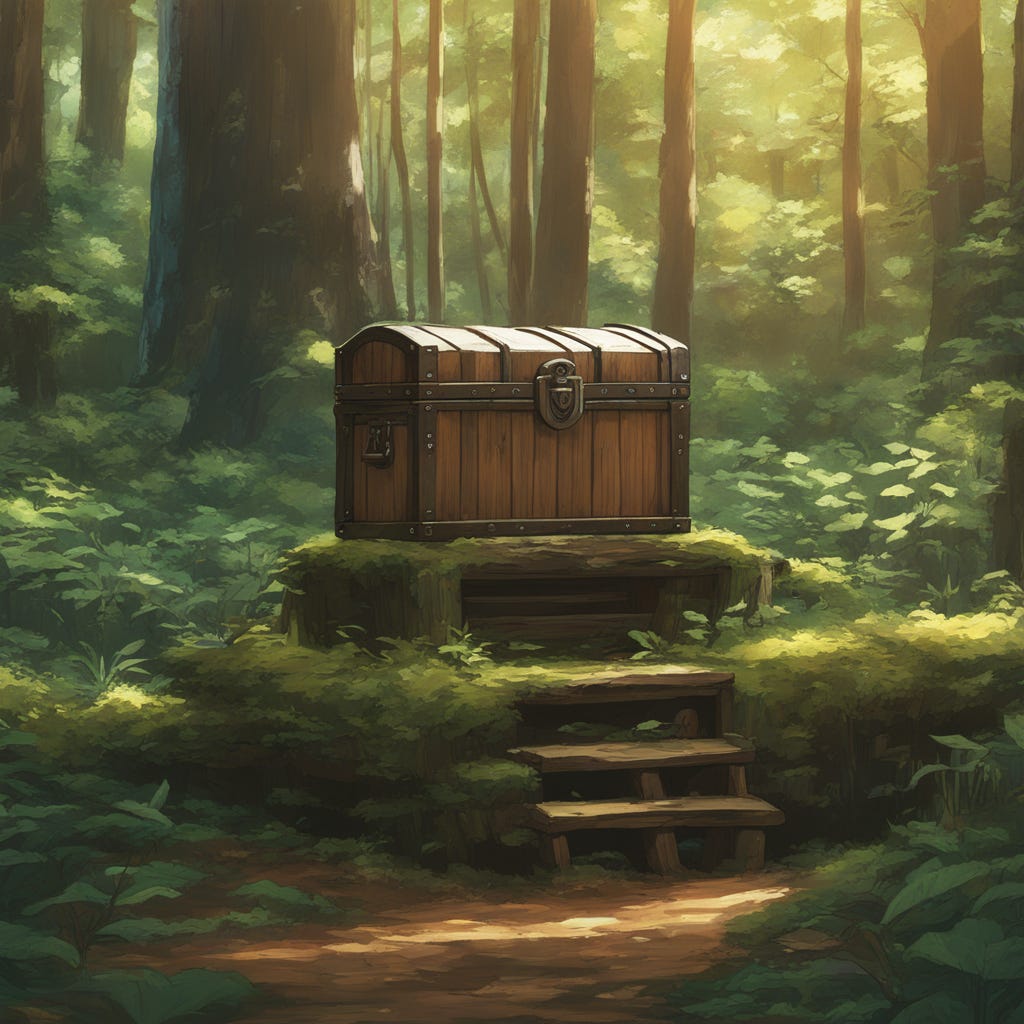Two hard truths and one good truth about the path
After a rapid move from the East to the West coast in 2015, I came to terms with the reality I had burned out. I didn’t enjoy discovering that I wasn’t emotionally healthy by default. And so, in my early thirties, I embarked on a journey towards wholeness.
Now let’s fast forward five years: I recognized precursors of burnout yet again. Granted, knowing beforehand I was too far down the rabbit hole really made it easier to come back out. And, by this time, I also had a path to realign towards wellbeing.
Here is a hard truth: Even the foundations we lay and boundaries we build cannot protect us from the swell of a hurricane.
I was humbled. Eventually it becomes evident to all of us who’ve recognized our need to heal, mature, and grow, that becoming and then staying an emotionally person is a life-long journey.
This was disappointing. I wanted to avoid the pain that comes with burnout and healing from life’s other knocks and bruises! Avoiding pain is an enneagram seven’s primary motivator, after all! I don’t want any of it! But these days I’m a little more okay with this becoming and staying path. Sure, being perfect might avoid pain, but perfection is still a pretty impossible standard to live up to. It brings it’s own version of suffering.
Here is another hard truth: Even if we could always reach perfect goodness, we are still not safe in a world that has fallen short of Shalom.
So I land on this good truth: Grace is a wonderful gift. And the pursuit of becoming is too.
The path’s foundations
Now, with my “we never arrive on earth” disclaimer pronounced, where are we? We find ourselves at the path. Some of us are far down the path. Others are staring at it wide-eyed at its entrance, like I was at the beginning of this story. But what is actually on it?
I can’t answer that for you, for you will walk a different path than I. But let me share what’s been on mine, helping me walk towards wholeness.
First, there are some primary foundations of the wellbeing path. These are deep, visceral, and vital. At the top of this list is finding the Source of Life and absolution, then following after are things like knowing our worth, discovering our identity and forgiving others. These are life changing.
For example, when I realized my brokenness showed up in a way where I wanted to make everyone like me (and took pride in it when they did). Everything in my world hinged on this. Yet, I turned away from that co-dependent way of living. Then, I became confident in my worth and who I safely belong to, which empowered me to come out as a “recovering people-pleaser.” Now I boldly and intentionally push away these co-dependent tendencies. In some environments, I get to humbly ask for help or know those spaces aren’t a good fit for me.
These are the types of insanely huge trajectory shifts that can happen on the path of wellbeing. But today, I’m not going to hone in on these foundations—I tap into these topics regularly in my writing already.
My toolbox
Instead, let’s chat about building a set of practices. These days, I have a “toolbox” of sorts, filled with healthy coping skills to emotionally regulate and bring me back to faith, hope and joy.
I’m proud to share that my toolbox is freakin’ awesome. By the time I went back to counseling, two months after Kai was born, my new therapist asked me to name any healthy methods of coping I was using. I quickly rattled off a list, impatiently waiting for her to write them down. Then I desperately asked, “Do you have anymore ideas? I really need help!” She tried to hide her laughter, informing me that she was caught off-guard. The majority of the other clients she’d worked with had little to no healthy coping skills they regularly used.
That shocked me. Although somewhere in me I knew it, for the first time it really hit me that everyone didn’t have these. I had walked with others through their trauma before, often with cycles of house-burning-down types of coping. I didn’t get how insanely impossible it would be to do without the toolbox I had slowly been acquiring on my wellbeing path. I was overwhelmed with gratitude for the seasons before the crises where I had been given the grace to build up a toolbox.
List of tools
You probably want to know what is in the toolbox. Off the top of my head, here are some of the tools in my emotionally healthy toolbox:
Deep breathing methods (starfish, four square, etc…)
A feelings wheel (to help me name what was going on inside)
Reading the Psalms and sometimes other poetry
Life Mapping - my workbook to realign with my purpose/values and goals
Having an “ideal schedule” to help me say no (also part of Life Mapping)
Emotional body scan
Methods of listening-in-prayer, like immanuel journaling or consolation/desolation
Going outside to soak in nature for at least five minutes
Gratitude lists
Telling people outside my home—especially when I don’t want to
Adding an adventure to the day
Intentionally tightening or releasing muscles (fists/shoulders especially)
Journal processing, like using CBT worksheets or even my own Journal Through Change workbook
Breath prayers
Practices to move out of fight/flight/freeze/fawn mode
Going for a drive to calm down
Truth statements/affirmation cards (Not generic, ones that are personally speaking out what I need to hear)
Tapping the vagus nerve
Lavender aroma therapy
Listening to music that points me back to hope
Walks, Yoga With Adriene, and other movement (helping my body and brain!)
Taking breaks in conflict
Brain-dumping (especially when overwhelmed or insomniac!)
Intentionally making and marking joy memories to come back to and “soak in” when I’m upset (lists, photo albums, magnets, etc…)
This list isn’t exhaustive. Nor is it in order of how frequently I’ve used each tool. This list can’t express how vital some are to me! Regardless of how I wrote them out, I am convinced each one was a gift from God.
Point is, without this toolbox already in place already, I can’t imagine making it through the last few years. I am not sure I would have survived.
An awkward conversation on joy
Although it really began in 2019, last year was particularly notable as “Elisa’s year of crisis” to others watching me. Something about going in-and-out of hospitals more than a dozen times can capture bystanders attention on Facebook (although, just as surprisingly, the majority still will not notice). Once tough-times are noted, though, they can provoke awkward conversational moments.
One of these conversational questions inevitably is, “Elisa, how did you get through this season of challenge and crisis with such joy?” Let’s be honest here, this usually sends my mind in a full circle before I can even get to the question.
First, I wonder why they thought I had such joy, and then wonder if I actually did have joy. “Joy” isn’t so easy to define and I am just not sure I measure up.
Then, my wondering goes down the path of why the one asking seems to be a little in awe. Is it because they are trying to imagine living through this? I wouldn’t want them to! Trying to glean wisdom from my experience? By the time I decide awe isn’t really a weird way to express empathy and respect, I’m onto my third hang-up.
Here I start feeling good about how “well I suffered.” I pat myself on the back with a “you’ve got this down, girlfriend!” Immediately after pride peaks up its wiry head, comes the sense of disgust that is where I went with this.
Finally, only after that process am I even able to consider an answer to the question. As you can see, a lot of the awkwardness is on my side, not the one who asks me about it!
Prepared
So then, what do I say to questions about suffering with joy? It is easy to spout off something like, “by the grace of God.” And it is one-hundred percent true. It is also true that I had support, insurance, loved ones, and a decent medical team. Yet, what I don’t want you to miss in this piece in this article is this:
I was prepared in advance.
God had been building me a lifeboat. He was giving it to me far in ahead of the traumas and suffering he knew I would face. And when I faced them, floodwaters up to my neck, I didn’t drown. Instead, I grabbed his arm and met him there. We could find peace in the storm.
I hope you take this as an invitation to walk down your own emotional wellbeing path towards wholeness. I invite you to build your own toolbox. Or if you already have, write it out. Keep going, collaborate with others (like meeeeeee!) and share what gifts you’ve been given.
Follow me on Instagram here @AuthenticallyElisa.







This makes me so so happy! First, wow, good for you, going back to therapy to keep working through that stuff. I've heard it been said healing from deep childhood wounds is like a spiral. We don't really arrive, we just kinda circle, but it gets further and further. But healing is ours, and when we aren't restored all the way yet, he walks with us! Thank you so much for sharing your journey with me, I feel honored. I know there are so many others, like us on this path and it is so encouraging to know we aren't alone..cheering you on! 📣
I love God’s timing so much! Thank you Elisa for throwing me a lifeline. I want to underline what you said that it becomes evident to all of us…becoming and then staying an emotionally healthy person is a life-long journey. I turned 58 last December and I’m humbled to be back in therapy but this time childhood trauma is being healed. 🙌🏻 Today in church I felt hurt by some of my sisters in Christ and then I get home and read your post and yes…I’m a people pleaser that needs healing and I’m starting to understand codependency. Thank you for sharing your toolbox…it is awesome!